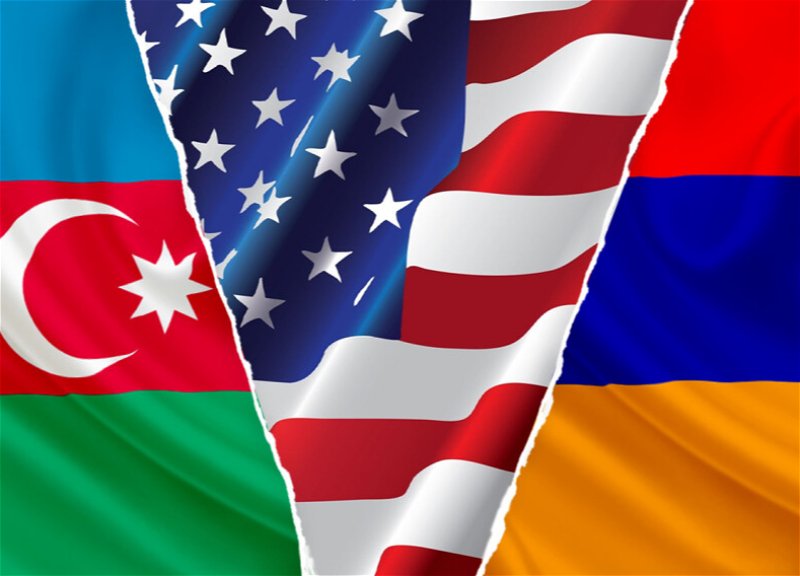The U.S. capital is once again in turmoil as Armenian advocacy groups and pro-Armenian lawmakers in Washington intensify efforts to derail the ongoing peace process between Azerbaijan and Armenia.
In a recent letter to the Trump administration, 87 U.S. lawmakers — led by Armenian Caucus co-chairs Frank Pallone, Gus Bilirakis, Brad Sherman, and David Valadao — called for support of what they describe as the “return of Armenians to Nagorno-Karabakh,” a term long abandoned in international terminology. The region is officially recognized as the Karabakh Economic Region of the Republic of Azerbaijan.
What these lawmakers conveniently ignore is that ethnic Armenians in Karabakh left voluntarily. Those wishing to remain were offered Azerbaijani citizenship and full rights under the Azerbaijani flag — a condition fully consistent with international law. By advocating for their “return,” these lawmakers are not only out of touch with political and legal realities but are, in effect, encouraging the violation of sovereign law.
This congressional appeal comes at a delicate moment, just as peace talks between Baku and Yerevan — including a recent round in Abu Dhabi — have gained new momentum. The timing and content of the letter point to a broader agenda: to sabotage the normalization process and maintain Armenia’s historical dependence on foreign patronage.
The letter highlights the enduring influence of the Armenian diaspora in U.S. political circles. These same networks were behind the infamous Section 907 — a discriminatory measure that blocked U.S. aid to Azerbaijan — and long supported Armenia’s aggressive policies, contributing to decades of conflict in the region.
Today, these lobbying efforts aim to stall peace, provoke revanchist forces within Armenia, and destabilize a region moving toward lasting resolution. Far from representing the interests of peace, the Armenian lobby appears determined to reignite tensions.
This interference also poses a challenge to President Trump, who has taken a balanced approach to the South Caucasus conflict. His administration has shown cautious optimism about the peace track, and the Armenian lobby’s actions may be intended to undermine both Trump and the Republican platform as the 2026 midterms approach.
There may be more than foreign policy at stake. Some of these lawmakers — heavily funded by Armenian diaspora money — could be seeking to shield themselves from corruption investigations. The downfall of former Senator Bob Menendez, sentenced to 11 years in prison for bribery and acting as an unregistered foreign agent (his Armenian wife included), still echoes in Washington.
Another figure under scrutiny is Democrat Senator Adam Schiff, whom Trump recently accused of mortgage fraud and tax evasion. “Adam Schiff is a thief,” Trump wrote on Truth Social, sharing documents to support his claims. Schiff, a prominent pro-Armenian voice in Congress, may face similar legal exposure, Trump argued.
And then there’s Frank Pallone — a longtime Armenian advocate — who faced public backlash during a visit to Baku for COP29. Confronted by protestors and pressed by local journalists about the Armenian money funding his political career, Pallone and fellow Armenian lobbyist Senator Ed Markey were forced to leave Azerbaijan in haste.
Presidential aide Hikmet Hajiyev offered a pointed commentary afterward:
“Perhaps Pallone experienced mental distress while looking out his hotel window at the Trophy Park — where destroyed Armenian military equipment is displayed — or at the Victory Park inaugurated by President Ilham Aliyev. Maybe that was divine justice for the years of injustice he helped perpetuate against the Azerbaijani people,” Hajiyev wrote on X.
@FrankPallone and senator @EdMarkey
upon returning to the U.S. after their visit to Baku, are once again presenting the outcomes in a way that aligns with what the Armenian lobby wants to hear.(I) 1.I met with Senator Ed Markey upon his request.
2.reminded him that after the… pic.twitter.com/FFKXnYJe2N— Hikmet Hajiyev (@HikmetHajiyev) November 19, 2024
In the end, the desperate tactics of Armenian lobbyists reflect a deeper insecurity: the fear of losing relevance in a region where peace is no longer a hypothetical goal, but an emerging reality — one driven not by outside manipulation, but by regional cooperation, diplomacy, and sovereign will.


